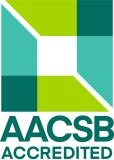Economics: Financial Economics
Combine practical financial management with economic analysis of the markets you invest in. You will address for example urgent problems in the Euro zone, international financial supervision, micro-finance, bank-runs and systemic risk, and taxation of financial institutions. This is a track of MSc Economics.
in 2022/2023
MSc Economics including all tracks
National Student Survey 2023, MSc Economics including all tracks (n=41)
Program and courses
Become skilled in both Finance and Economics, and learn, among other things, how international bodies function (e.g., the European Central Bank), why tax policies are designed the way they are, and what the consequences are for companies in Europe.
- Great diversity in nationalities, with about 60% international fellow students.
- Connected to the European Banking Center, a Tilburg based research network on banking and financial markets with close connections to the business sector.
- This is a track of MSc Economics. You can choose to follow the main program or one of the tracks.
Typical courses are:
- Financial Economics
- Financial Markets and Institutions
- Economics and Psychology of Risk and Time

Career prospects
Upon graduating you will have obtained the following title (as stated on your diploma): Master of Science. With a specialization in Financial Economics, you will be skilled in both finance and economics. These combined skills are perfect for a career in banking, consulting private businesses with international policy making challenges, or supporting governments in the (inter)national arena.
Some examples of our graduates' jobs:
- Finance Trainee at the ABN AMRO Bank
- Trading Risk Analyst at ING Group
- Consultant at IBM
Alumni facts
- 100% are (very) satisfied with the Master's program
- 95% would recommend the program to friends, family and colleagues
- 81% would choose the same program at the same university
Source: National Alumni Survey, 2021 | MSc Economics including all tracks| n=21

Application and admission
This Master’s program starts:
End of August and end of January
Best preparatory programs:
A Bachelor’s degree in Economics or in a similar program (e.g., in Econometrics).
Pre-Master’s program
Open to Research University students, not to students from a Dutch University of Applied Sciences (HBO).
Tuition fees and scholarships
International students find the information about the tuition fees and the scholarships available here.
Interested in this Master's program?
More information on this Master's program
Create your own e-brochure with information on program content, admission requirements, career prospects, and student life in Tilburg. Throughout the year you can take part in various types of events: on-campus, abroad or online.
-
13:30 - 15:45
Campus Experience
Are you curious about life as a student at Tilburg University, or not sure which university you want to attend? Join our Campus Experience on Wednesday
May 8! Discover our compact and green campus with one of our students and find out if Tilburg University is your future home. -
To be announced
Master's Open day
Are you interested in doing a Master's program? Do you want to specialize or are you looking for a Master that broadens your possibilities? Join us at the Master's Open day on November 16 to find out which (pre-)Master's program suits you best. Learn all about our (pre-)Master’s programs and tracks, and ask teachers, students, and education coordinators your questions.
Interested in the MSc Economics?
Check your eligibility and the deadlines for application



